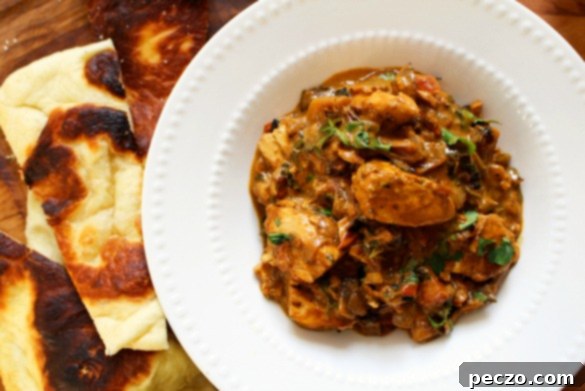Mastering Authentic Indian Curry: A Culinary Journey from Ismaili Traditions to Vikram Vij’s Secrets
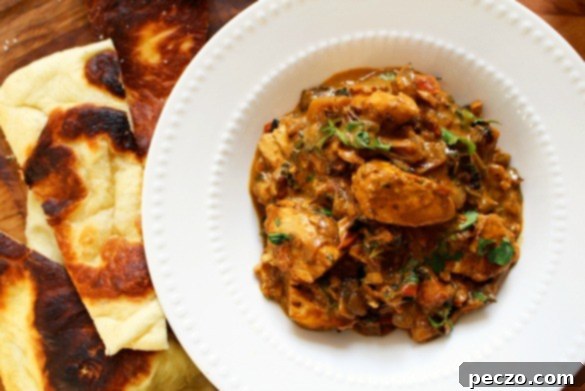
My culinary adventures have taken me across various cuisines, but despite never having set foot in India, I proudly consider myself a fervent curry enthusiast. The vibrant tapestry of Indian cuisine, with its complex flavors, aromatic spices, and rich cultural heritage, has always held a profound fascination for me. It’s a culinary world that constantly invites exploration, promising endless discoveries for the home cook.
My journey into the heart of Indian cooking recently took a significant turn when I had the invaluable opportunity to spend time in the kitchen with an extraordinary individual: Mrs. Nimji. An octogenarian neighbour, Mrs. Nimji is a true culinary luminary who has self-published what is widely regarded as the definitive bible of Ismaili cooking. Her book has achieved remarkable success, selling an astounding quarter of a million copies, a testament to her expertise and the enduring appeal of her recipes. Being in her kitchen was an experience I cherished deeply. I watched, mesmerized, as she meticulously toasted her spices, each aromatic puff filling the air, and precisely snipped almonds, all while impeccably dressed in a button-up housedress that served as a full-body apron, keeping her outfit spotless beneath.
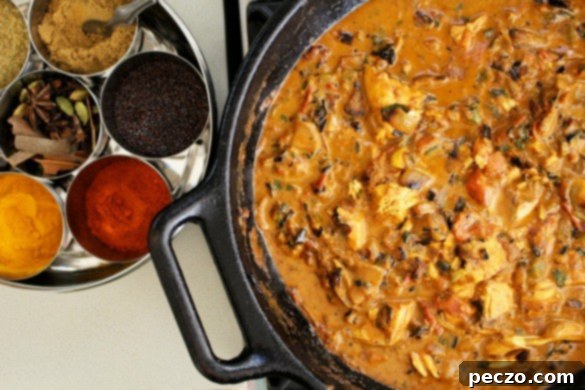
Mrs. Nimji’s generosity extended beyond her invaluable lessons; she gifted me a jar of her homemade garam masala, a signature blend of ground spices, and my very own masala dabba. For those unfamiliar, a masala dabba is an iconic round tin filled with several smaller, round tins, each brimming with different essential spices – truly the Indian equivalent of an artist’s palette, ready to unleash a symphony of flavors. This beautiful gift sat proudly on my countertop for weeks, admired but not yet fully embraced. I felt a slight intimidation, not quite ready to delve into its depths until a recent pivotal weekend. That was when I had the immense privilege of connecting with Vikram Vij, a name many will recognize from his acclaimed restaurant in Vancouver, and his various other ventures, including appearances on media, as a “Dragon” on Dragon’s Den, and as a judge on Top Chef Canada. His reputation precedes him, but his personal stories are what truly captivated me.
Over an unforgettable dinner, Vikram recounted his humble beginnings, arriving in Canada in 1989 after chef’s training in Austria, fresh from his homes in Delhi and Mumbai. He started his career in the kitchens of the majestic Fairmont Banff Springs. He then shared a particularly poignant anecdote about opening his Vancouver restaurant in the early nineties: his mother, dedicated to ensuring the authentic taste of home, would lovingly prepare large pots of her curry and personally transport them on the bus, cradled carefully on her lap, all the way to the restaurant. Her unwavering commitment was simply to guarantee that every dish served was “exactly right.” Such stories are not merely tales; they are powerful narratives that embody passion, tradition, and the deep emotional connection between food and family, offering a profound glimpse into the soul of a chef.
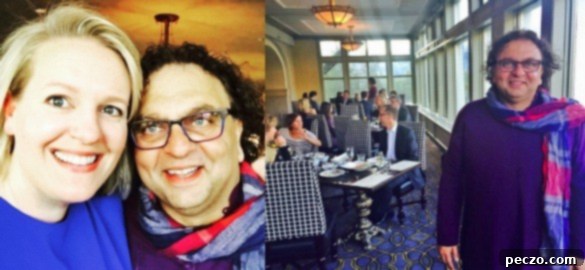
Vikram’s presence in Banff was to celebrate the grand opening of a new seasonal restaurant called Indian Summer, a venture that is transforming one of the most exquisite spaces in the Fairmont Banff Springs hotel. This prime location, the upper Rundle Lounge, holds fond memories for me and my husband, Mike, where we often enjoyed cocktails with our son, W, nestled in his carrier. Our visits were often prompted by the irresistible bowls of warm cashews and, of course, the utterly breathtaking panoramic mountain views that accompanied them. Now, this cherished spot is being reimagined into a vibrant Indian dining experience. The menu features two signature recipes personally crafted by Vikram, with the remainder developed in a collaborative spirit with the talented Fairmont chefs. The commitment to authenticity is evident in every detail, including homemade chutneys, cooling raita, and freshly baked naan, all of which will be served throughout the summer season, promising a truly immersive culinary delight.
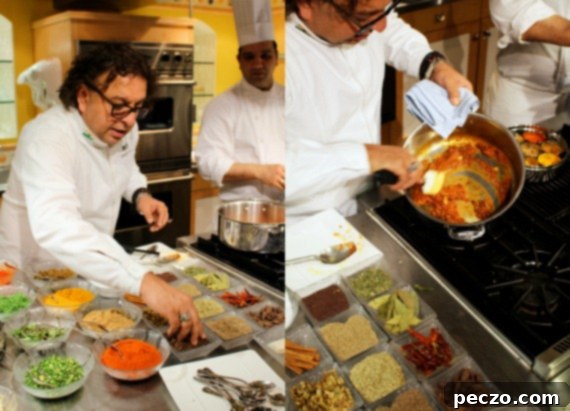
On a memorable Friday afternoon, Vikram conducted a masterclass, demonstrating the preparation of his family’s chicken curry, alongside another rich curry featuring goat and fenugreek, and a succulent lamb dish. During the demonstration, he eloquently emphasized the profound importance of spices in Indian cooking. It’s not merely about the quality or the sheer variety of spices one uses, he explained, but critically, it’s about the precise order in which they are introduced into the pot. This sequential addition allows each spice to bloom and release its full aromatic potential at the right moment, building layers of flavor that are impossible to achieve otherwise. He shared invaluable techniques, such as his preference for “cooking the hell out of his onions”—a phrase that perfectly encapsulates the art of caramelizing onions until they achieve a deep, rich brown color, contributing a crucial sweetness and depth to the base of the curry. He then advocated for deglazing the pan with tomatoes, a step that not only adds a bright acidity but also lifts all the caramelized bits from the bottom, incorporating their concentrated flavor. Finally, he recommended finishing the curry with a generous dollop of sour cream and a splash of water. His reasoning for sour cream over yogurt was particularly insightful: sour cream holds up remarkably well to heat and acidity, maintaining its creamy texture without curdling or separating, a common issue with yogurt. Heavy cream, he noted, also works effectively for a similar luscious finish.
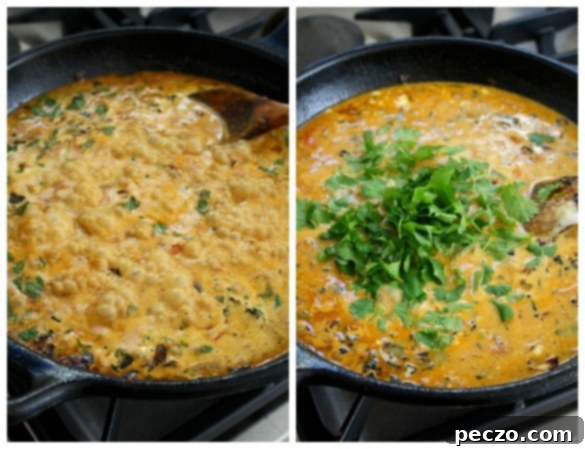
Inspired by Vikram’s lessons and fueled by a newfound confidence, I practically burst through my front door. Within ten minutes of getting home, I eagerly pulled out my new masala dabba, its individual tins brimming with possibility, and immediately started cooking. The beauty of curries, a lesson I’ve always appreciated, is their incredible versatility. You can craft a delicious curry from almost anything you have on hand – whether it’s forgotten wrinkly vegetables languishing in the fridge, a humble can of chickpeas, or you can bulk it up with something as simple as a diced potato. In my case, I had a leftover hunk of perfectly roasted halibut in the fridge, destined to become the star of my inaugural curry post-masterclass.
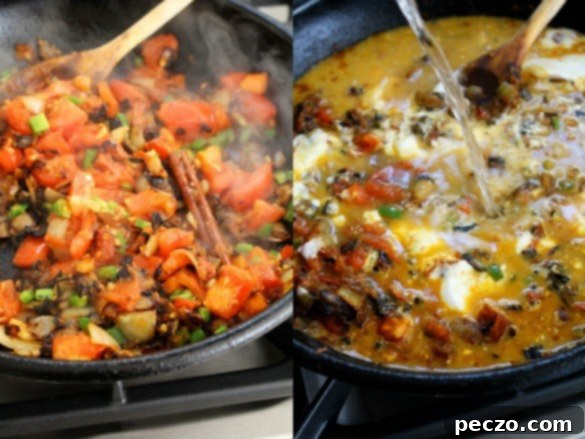
I began by applying Vikram’s onion technique, “cooking the hell out of my onions” until they achieved that perfect, deep caramelization, forming a sweet and savory foundation. Then came the meticulous layering of spices, followed by the fragrant addition of fresh chiles, ginger, and garlic. The process itself isn’t overtly complicated, but it’s the thoughtful compilation and sequence of these ingredients that truly elevates the flavor profile, making all the difference between a good curry and an exceptional one. Both Vikram and Mrs. Nimji, I observed, are quite generous with their use of oil – perhaps a little more than I typically employ in my own cooking, but clearly essential for extracting maximum flavor from the spices. What’s truly remarkable about this base is its adaptability: you could effortlessly substitute the halibut with chicken, beef, shrimp, or even vegetarian alternatives like chickpeas or lentils, and the result would undoubtedly be just as delicious and satisfying.
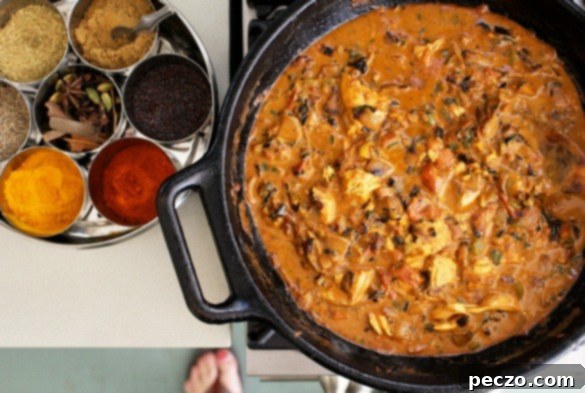
My journey into the world of Indian cuisine, guided by the wisdom of Mrs. Nimji and the dynamic insights of Vikram Vij, has been nothing short of transformative. From understanding the cultural significance of the masala dabba to mastering the intricate dance of spices, each encounter has deepened my appreciation for this rich culinary tradition. The halibut curry I created, infused with newfound techniques and a greater understanding of flavor building, was a testament to the power of these lessons. It was a dish born not just from ingredients, but from stories, traditions, and the shared passion of remarkable chefs. I encourage every home cook to embrace the adventure of Indian spices, to experiment with confidence, and to discover the endless, delicious possibilities that await in their own kitchen. The magic of a perfectly balanced curry is an experience everyone deserves to savor.
